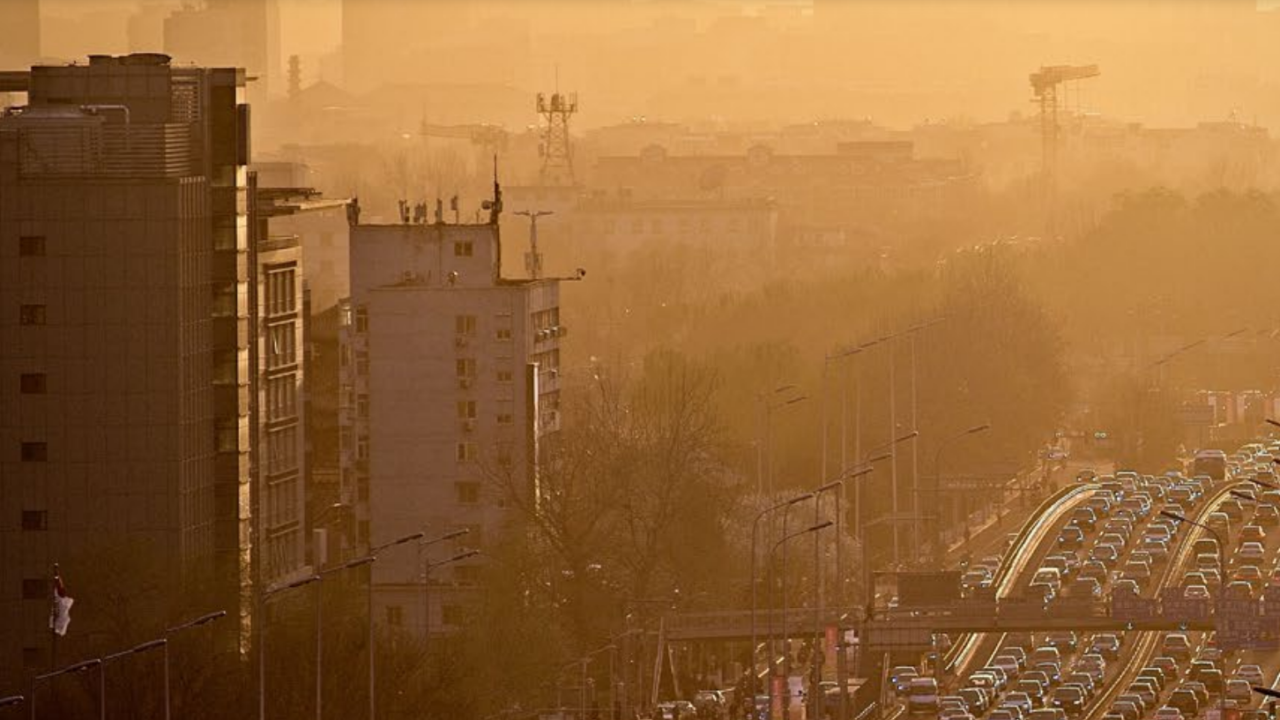Air pollution is reducing people’s life expectancy all around the world, with the average person losing 2.2 years to particulate matter (PM) pollution that exceeds the guideline set by the World Health Organization (WHO).
According to the Air Quality Life Expectancy report, published this week, the impact of this pollution is greater than the effects of devastating communicable diseases and even war.
Did you know?
Global air-pollution concentrations have declined since 2011 and that decrease is almost entirely attributed to China! More on this below…
On average, we are exposed to more than three times the WHO’s guideline, according to the report.
But if air pollution levels were reduced to the WHO guideline, it could increase global average life expectancy from roughly 72 to 74 years, and in total, the world’s population could gain 17 billion life-years.
What is particulate matter?
Particulate matter refers to solid and liquid particles – soot, smoke, dust, and others – that are suspended in the air. Some have their origin in natural sources such as dust, sea salt, and wildfires. Most come from the combustion of fossil fuels – from vehicle engines and power plants – and the combustion of biomass—such as through household wood and crop burning.
“Measured in terms of life expectancy, ambient particulate pollution is consistently the world’s greatest risk to human health,” the report states.
To put that into perspective, the report outlines the following:
“First-hand cigarette smoke, for instance, reduces global average life expectancy by about 1.9 years. Alcohol use reduces life expectancy by nine months; unsafe water and sanitation, seven months; HIV/AIDS, four months; malaria, three months; and conflict and terrorism, just seven days.
“The impact of particulate pollution on life expectancy is comparable to that of smoking, almost three times that of alcohol and drug use and unsafe water, five times that of HIV/AIDS, and 114 times that of conflict and terrorism.”

China
Strong, clean-air policies, particularly those that target the burning of fossil fuels, can reduce PM pollution, and increase life expectancies, the report states.
Doing this also has the added benefit of reducing greenhouse gas emissions.
In countries like China, for example, such policies have created positive results, according to the report.
“Since 2011, pollution concentrations have declined in China and other countries due to changes in air quality policies.
“Based on 2011 particulate pollution concentrations in China, average life expectancy would be 4.7 years lower relative to what it would be if air quality met WHO standards.
Based on 2019 concentrations, however, the impact on life expectancy is 2.6 years. In other words, China’s clean-air policies have improved average life expectancy by roughly 2.6 years.”
It’s not only in China that pollution concentrations have declined – globally, they have also dropped since 2011 and that drop is almost entirely attributed to China.
In fact, three-quarters of the world’s reductions in pollution have come from China since they began their “war against pollution” in 2013.
South Asia, in contrast, has experienced stable or rising air-pollution levels over that same period.
Europe
The eastern part of the continent is the most polluted in Europe.
According to the report, the entire populations of Poland, Belarus, Slovakia, Hungary, Lithuania, Armenia, Moldova, Cyprus, as well as Bosnia and Herzegovina do not meet the WHO’s guideline.
Poland is the most polluted country in Europe and areas surrounding Warsaw and Łódź suffer particularly high levels of particulate pollution, mainly due to a heavy
dependence on coal for household and commercial heating, and industry and power production.
